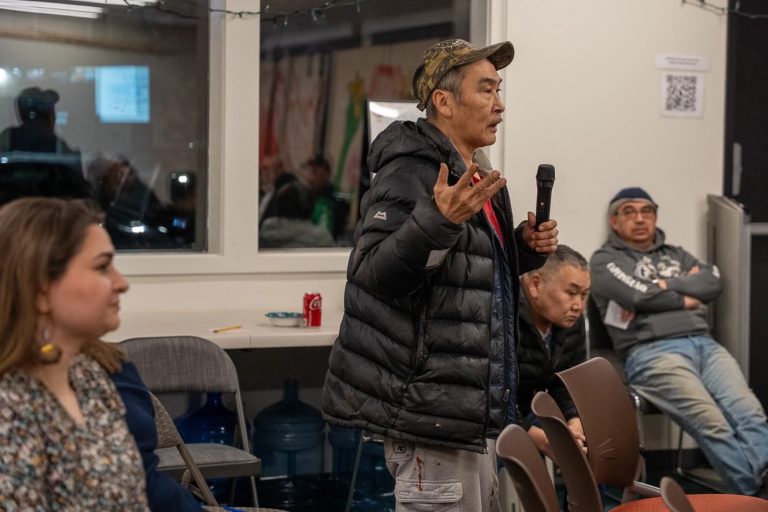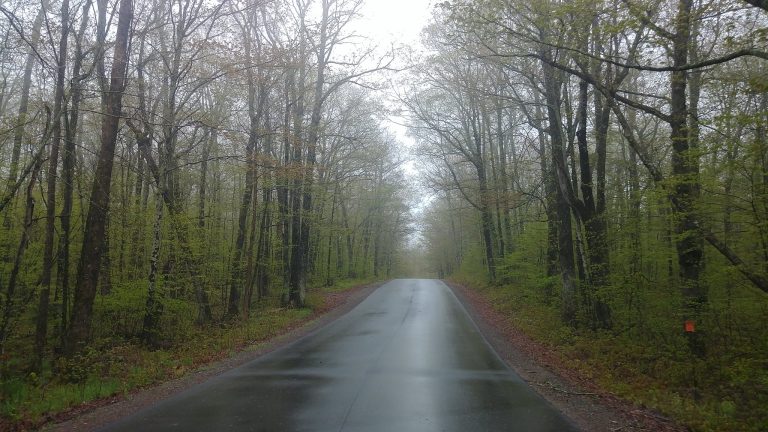Podcast: Play in new window | Download | Embed
Photo: Courtesy Milk River Meats & Eats / Facebook
Montana’s Department of Commerce recently awarded over $300,000 in grants to Native-owned businesses across the state.
The funds aim to support the economic development of tribal communities while supporting small businesses.
Montana Public Radio’s Victoria Traxler has more.
George Brown of Dodson and member of the Little Shell Chippewa tribe is among twenty-five business owners set to receive grants from the state.
Brown operates a small cafe, store and meat processing facility with his wife, Sherri.
The Milk River Meats and Eats is slated to receive $14,000 for new meat processing equipment.
Brown says the money is a “life saver.”
“It means a pile. I mean, things are so expensive this day and age that any help you can get to cover the main cost is going to make things work a lot better.”
The funding stems from the state’s Indian Equity Fund Small Business Grant program and goes to a variety of industries.
Grant funds will support Brown’s meat processing, as well as agriculture, retail, restaurants, and construction businesses.
Mackenzie Espeland is an administrator with the Department of Commerce:
“Supporting Native American-owned businesses empowers communities all across the state and it strengthens those tribal economies.”
She explained the grants create a “ripple effect” in their communities by stimulating growth and creating job opportunities.
This year, the program’s $320,000 will support business owners like George Brown.

(Courtesy Pattern)
Last week, a lawsuit from a pair of tribes challenging a powerline project in southern Arizona – previously thrown out by a Tucson federal judge – has been remanded back to a lower court.
KJZZ’s Gabriel Pietrorazio has more.
Plaintiffs allege the Interior Department illegally granted permits greenlighting construction of the SunZia Transmission Line, which broke ground in 2023.
The 550-mile route through Arizona and New Mexico crosses over the San Pedro River Valley – a region of archeological, cultural, and ecological significance to Apaches and O’odhams.
John Welch is with the nonprofit Archeology Southwest, one of four plaintiffs, including the Center for Biological Diversity, Tohono O’odham Nation, and San Carlos Apache Tribe.
“Certainly for this project and probably never again – at least in the 9th Circuit – is a federal agency going to be able to pretend that a project doesn’t have those landscape-altering effects. This is a very, very strong appellate decision – a big thumb on the scales of justice – in favor of the plaintiffs, and so it’s not just procedural. They’re going to have to consult in much better faith than the [Bureau of Land Management] did on this project.”
A three-judge panel from the 9th Circuit Court of Appeals found plaintiffs presented enough evidence to conclude that the agency violated the National Historic Preservation Act.
Still, this latest ruling doesn’t mean construction of SunZia will stop, nor that the tribes will win their legal battle to remove the lines.
The Assembly of Manitoba Chiefs is urging for immediate assistance, including housing for evacuees, as wildfires burn in northern Manitoba.
According to First Nations leaders, thousands of First Nations people are seeking refuge with many arriving in Winnipeg and other locations with nowhere to go and limited access to necessities.
And they say, current shelters are overcrowded and inadequate, and are asking for hotels and other accommodation in Winnipeg and across the province to help displaced families.
Leaders are urging the province for immediate assistance.
The province has declared a state of emergency.
Leaders say those in need of a place to stay, include elders, children, and individuals with serious medical conditions.
Get National Native News delivered to your inbox daily. Sign up for our daily newsletter today.



